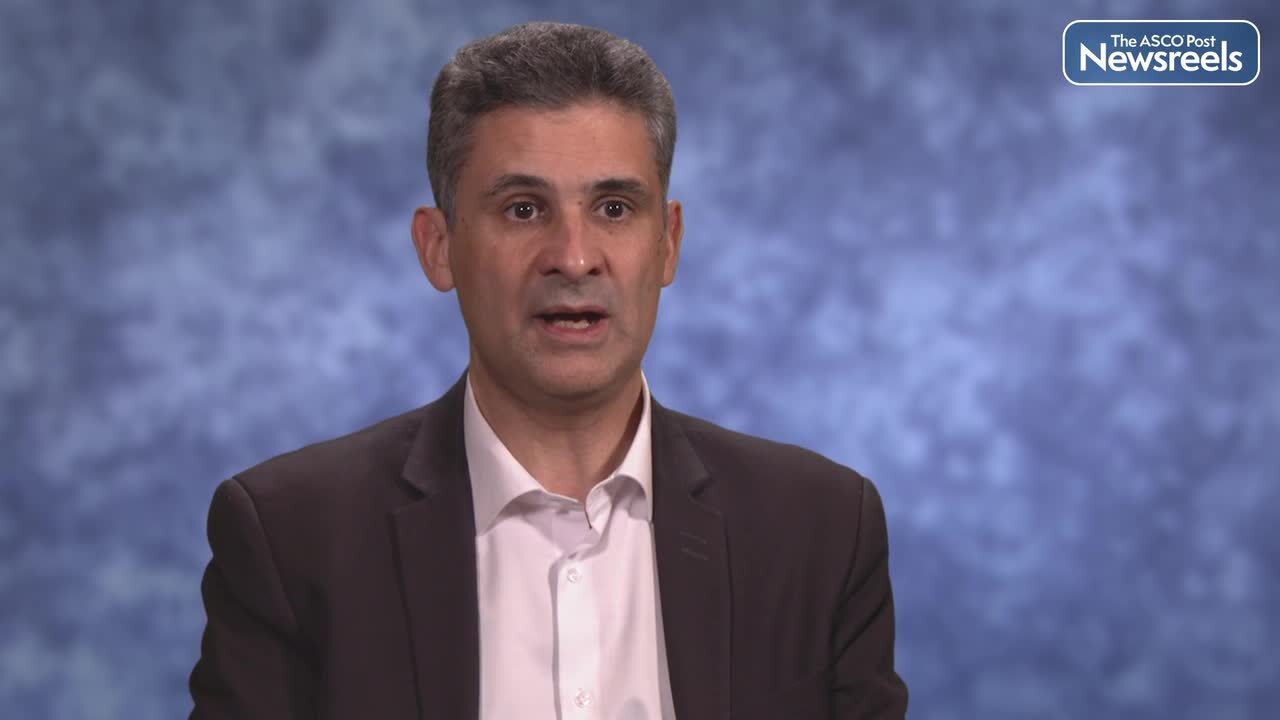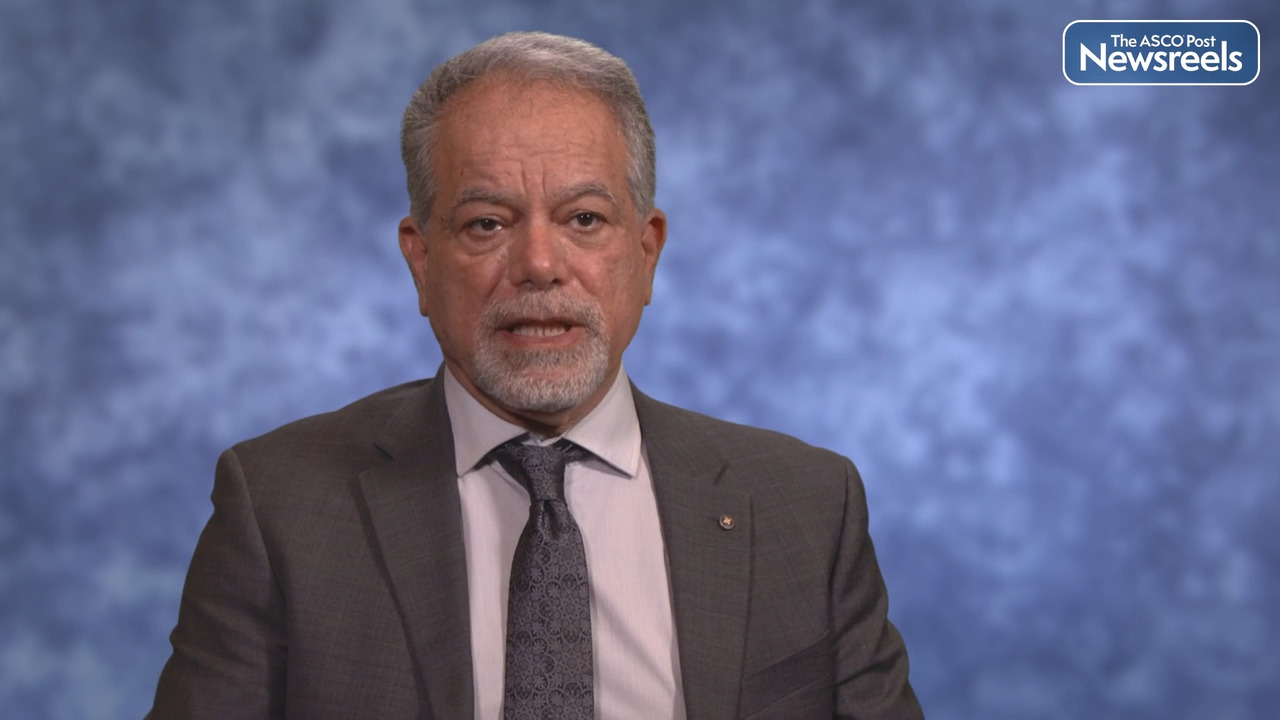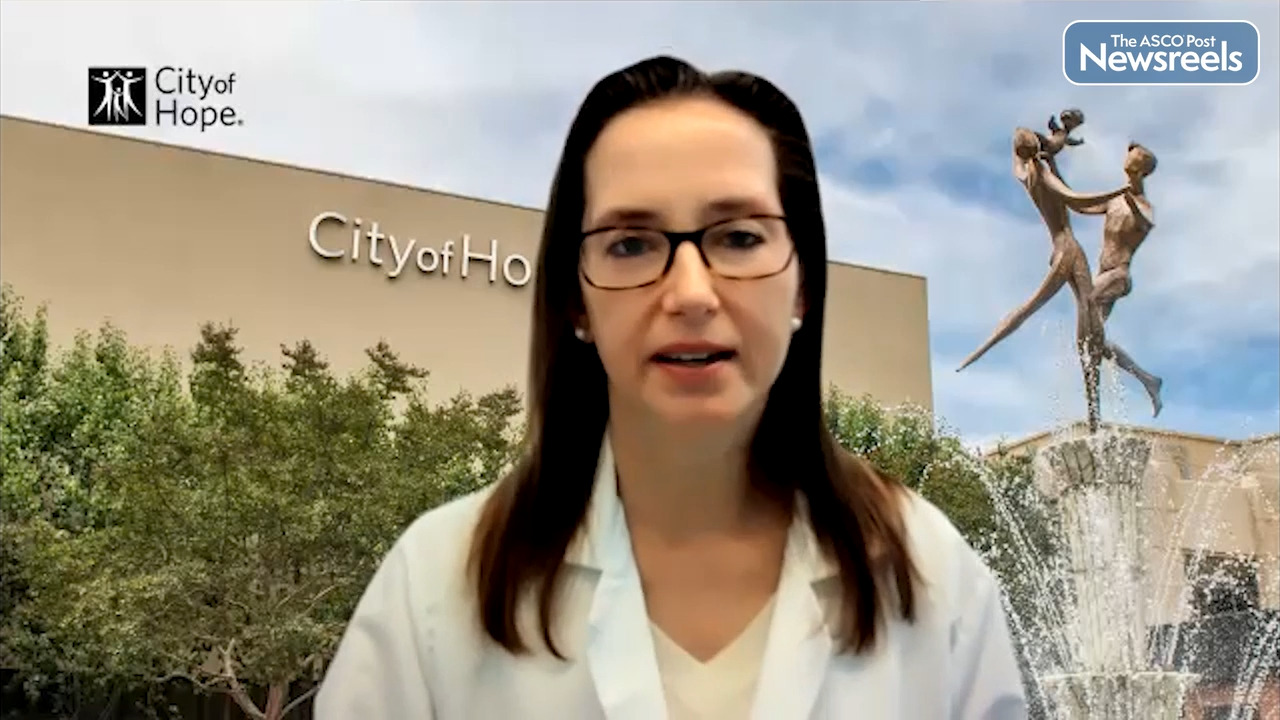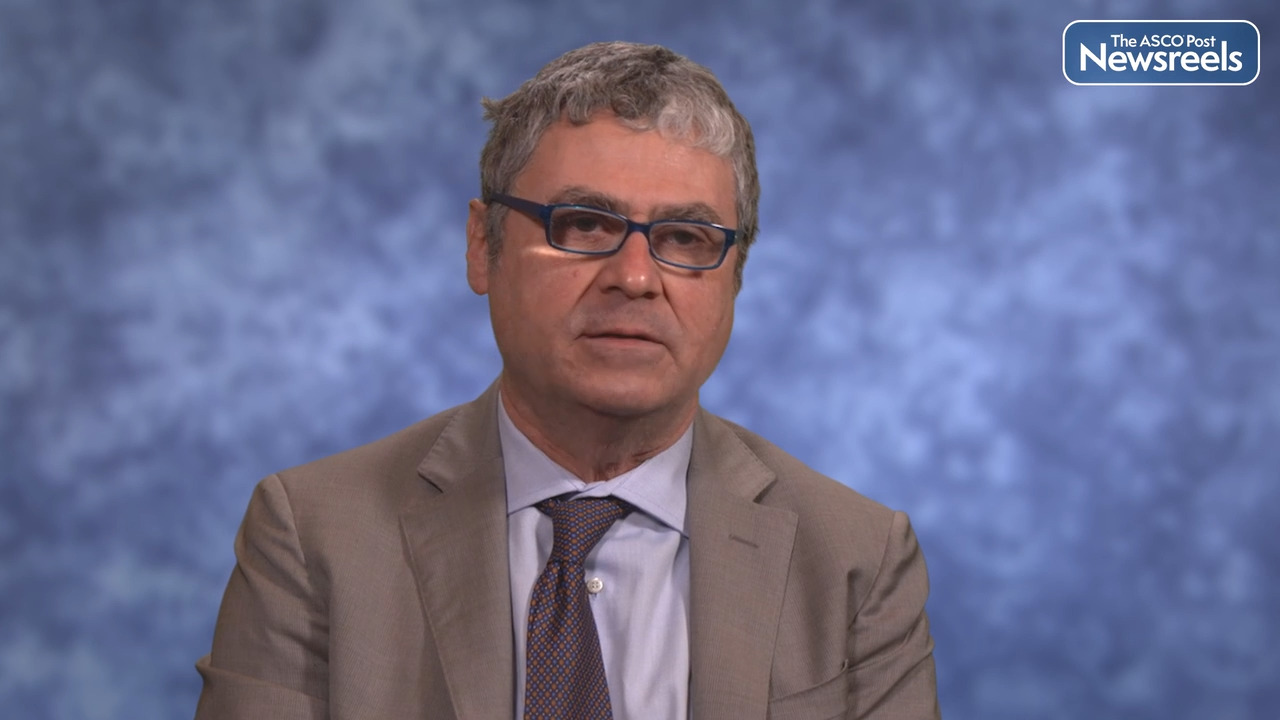Matthew R. Zibelman, MD, on Renal Cell Carcinoma: New Results on Combination of Nivolumab and Axitinib
2022 ASCO Genitourinary Cancers Symposium
Matthew R. Zibelman, MD, of Fox Chase Cancer Center, discusses phase I/II results from a study of treatment-naive patients with advanced renal cell carcinoma who received a combination of the immunotherapy (IO) nivolumab and the tyrosine kinase inhibitor (TKI) axitinib. The findings suggest that the efficacy of this regimen is comparable to that of currently available IO/TKI combinations for this population and has a similar safety profile (Abstract 291).
The ASCO Post Staff
Petros Grivas, MD, PhD, of the University of Washington and Fred Hutchinson Cancer Research Center, discusses results from Cohort 3 of the TROPHY-U-01 study, which assessed sacituzumab govitecan-hziy in combination with pembrolizumab in patients with metastatic urothelial cancer who experienced disease progression after platinum-based regimens (Abstract 434).
The ASCO Post Staff
Karim Fizazi, PhD, MD, of Gustave Roussy and University of Paris-Saclay, discusses results from a first-in-human phase I/II trial, which showed that administering ODM-208—an oral, nonsteroidal inhibitor of the enzyme CYP11A1—to men with metastatic castration-resistant prostate cancer who were pretreated with abiraterone/enzalutamide and taxanes was effective in blocking the production of steroid hormones. It also showed antitumor activity, especially in men with AR mutation–positive cancers.
The ASCO Post Staff
Fred Saad, MD, of the University of Montreal Health Centre, discusses phase III findings demonstrating for the first time the clinical benefits of olaparib plus abiraterone in patients with metastatic castration-resistant prostate cancer, irrespective of their homologous recombination repair mutation status. This regimen led to significantly longer radiographic progression-free survival than placebo plus abiraterone (Abstract 11).
The ASCO Post Staff
Tanya B. Dorff, MD, of City of Hope National Medical Center, discusses the first-in-human phase I findings showing that prostate stem cell antigen (PSCA) CAR T-cell therapy is feasible in patients with metastatic castration-resistant prostate cancer, with preliminary antitumor activity exhibited.
The ASCO Post Staff
Alfredo Berruti, MD, of Italy’s University of Brescia, discusses the first study to give adjuvant mitotane to patients with adrenocortical carcinoma, a rare disease with a high risk of relapse after radical surgery. Although theoretically this treatment may be clinically worthwhile, the findings suggest that the need for adjuvant mitotane should always be discussed on a case-by-case basis by the multidisciplinary team, and more study is warranted (Abstract 1).





